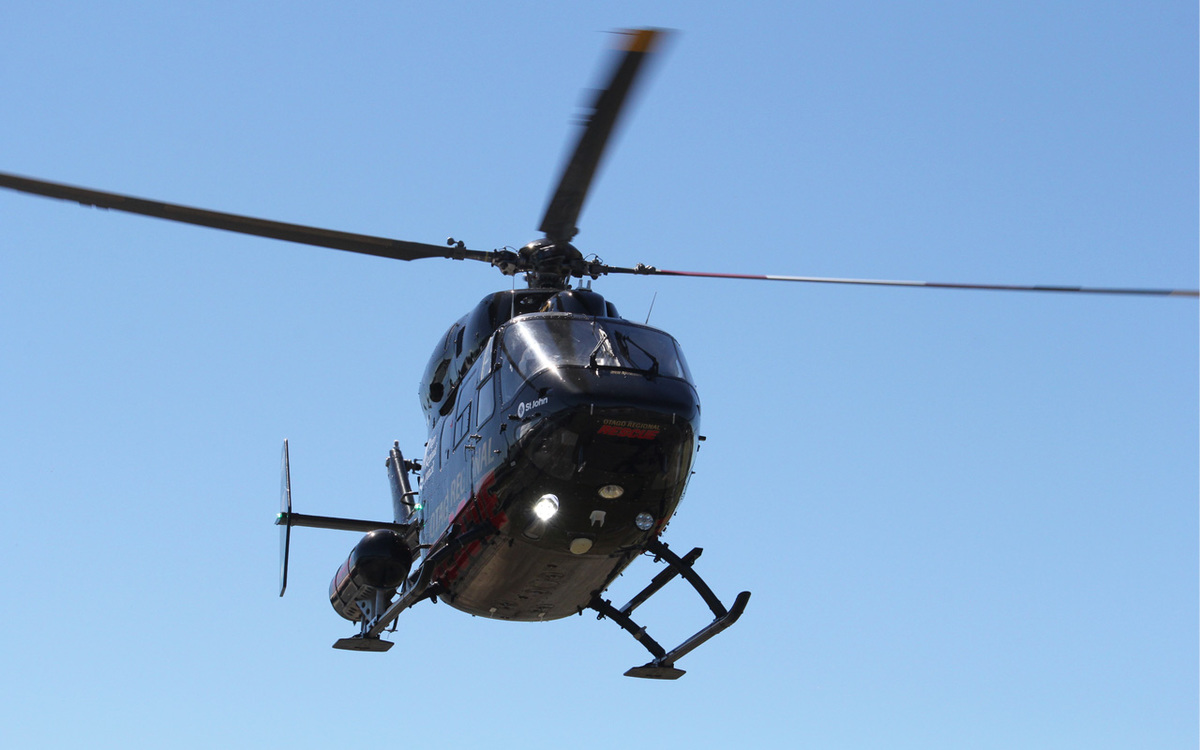Aviation laser strike bill voted down
Marjorie Cook
18 June 2020, 10:01 PM
 The Otago Rescue Helicopter had a laser pointed at it over Gore last year.
The Otago Rescue Helicopter had a laser pointed at it over Gore last year.Clutha-Southland MP Hamish Walker’s proposal to introduce harsher penalties for pointing high-powered lasers at aircraft and air control towers has been voted down in Parliament this week.
The vote against Mr Walker’s High-power Laser Pointer Offences and Penalties Bill has disappointed the New Zealand Air Line Pilots Association (ALPA) and Aviation New Zealand.
Association members are already reeling from large cuts to the aviation industry workforce, due to COVID-19’s massive hit on tourism and the national economy.
Among those affected are the Airways Corporation staff working at Invercargill Airport’s control tower, which is scheduled to close before the end of the year.
There have been laser strike reports in Southland, including one on the Otago Rescue Helicopter over Gore in May last year, resulting in the arrest of a 33-year-old man.
In February, police arrested a Christchurch man after a police Eagle helicopter was targeted by lasers during its first flight over the city during a five-week trial as an observational platform.
Two laser strike incidents at Wellington Airport were also reported this year.
ALPA says there is, on average, one laser strike incident reported a month, with reports increasing 130% over the past four years.
ALPA spokesman Tim Robinson, a commercial pilot, said members already held safety concerns due to the Airways Corporation restructuring.
New Zealand was “increasingly becoming an outlier internationally for its less enlightened regulatory stance” on high-powered laser devices, Mr Robinson said.
Cutting air traffic management infrastructure and preventing stronger legislation did not make sense and was “downright dangerous,” Mr Robinson said.
Aviation NZ chief executive John Nicholson said there was very good cause to follow what other countries were doing and introduce stiffer penalties.
“One of the concerns we have had all along is it is proving very difficult, if not impossible, to apprehend the people who are making the laser strikes and the proposed law does not make that any easier. But having said that, our laws are well behind what is happening overseas,’’ Mr Nicholson said.
Mr Nicholson said it would be worth trying to bring Mr Walker’s bill back to Parliament.
While it was hard to find culprits in the dark, pilots did get a general sense of where the laser strikes were coming from.
“But they don’t want to take a look down the laser beams. They don’t want to get distracted,’’ he said.
Authorities say pilots can become disoriented and temporarily blinded by lasers, which in turn could cause them to lose control of the aircraft and put multiple lives at risk.
Mr Walker said the bill would have put the offence on the same footing as assault. The present law was not strong enough and needed to change.
The bill proposed to double the maximum fine to $4000 and double the term of imprisonment from three to six months.
It would also have made it an offence to be in possession of a high-power laser in both public and private places.
Other amendments included allowing higher penalties under the Health Act 1956 for breaches around the supply of laser pointers.
“Pilots have been calling out for harsher penalties but this soft on crime Government seems content putting lives at risk rather than supporting my members bill.
“My bill would not only deter offenders but also raise awareness about this issue,” Mr Walker said.
Mr Robinson said Scandinavian countries prohibited or highly regulated laser use, while the United Kingdom had increased penalties and widened regulatory scope.
“In the United States, both the Federal Aviation Authority (FAA) and the Federal Bureau of Investigation (FBI) takes such offences very seriously, with fines of up to $250,000 and five years in jail.
Meanwhile, in New Zealand it remains a summary offence and very unlikely to attract the harshest penalty under the Crimes Act,” Mr Robinson said.
Mr Robinson would like to see the Government consider raising the status of laser attacks to an offence equivalent to “acts of illegal interference”, such as hijacking and bomb threats.
Mr Nicholson said he would be raising the issue at an Aviation NZ council meeting on Friday (June 18) and would also include the issue in his editorial for this week’s Aviation NZ newsletter.
AG | TRADES & SUPPLIES

